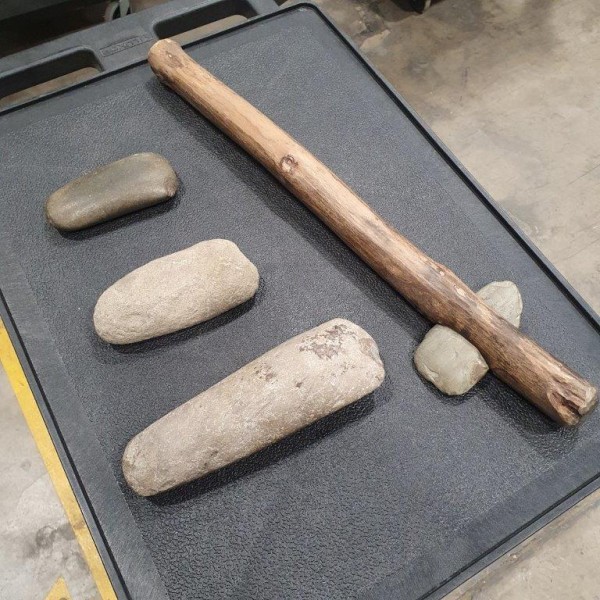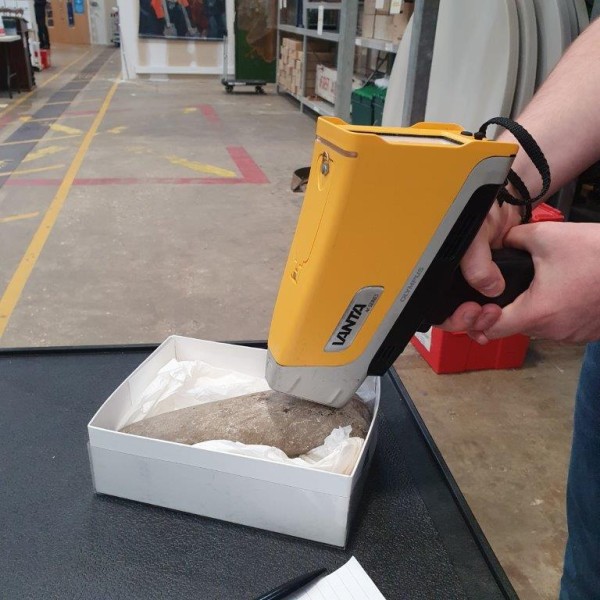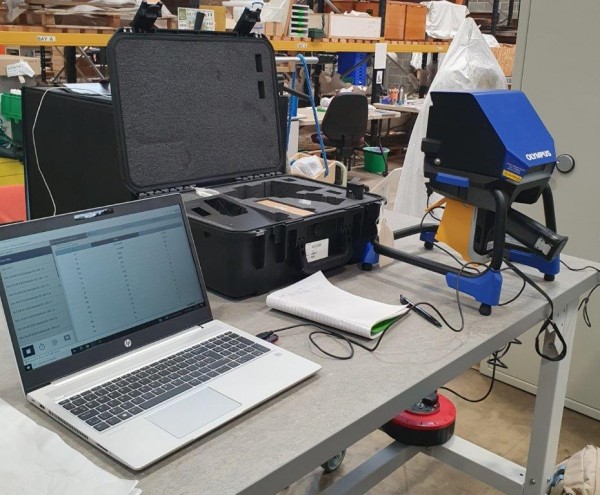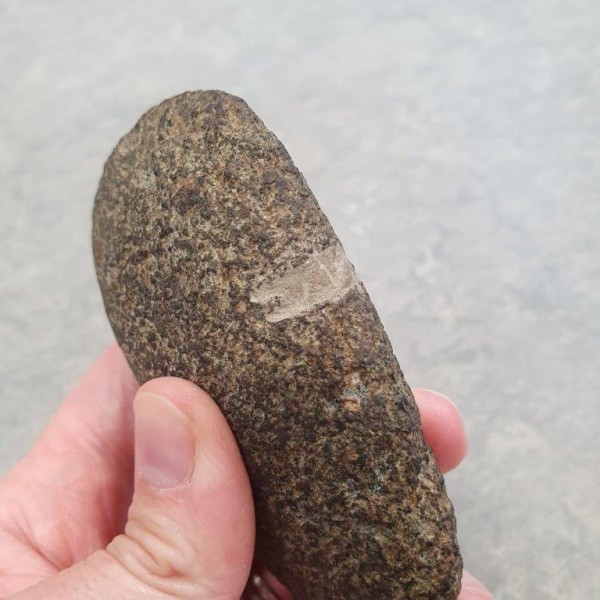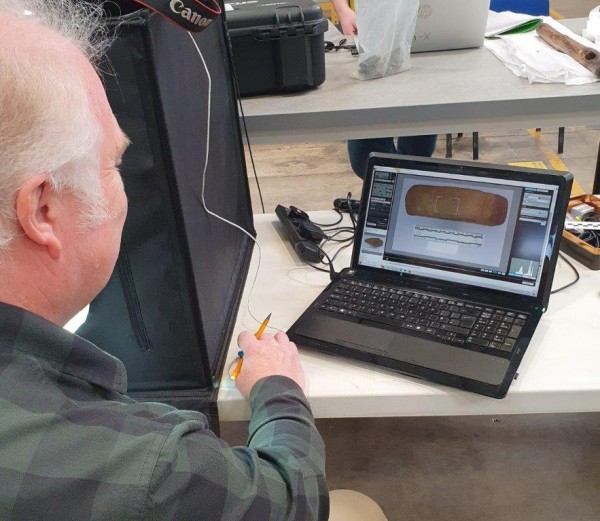25 October 2023
Charnwood Axe Analysis
Neolithic polished stone axes are some of the oldest and most tactile objects within our Archaeology collection. During the Neolithic period (c.4,000 – 2,200 BC) stone from outcrops across Britain was used to make this kind of axe. It is believed that stone from Charnwood Forest was utilised and axes believed to be made from this Leicestershire stone are known as Group XX axes. But which outcrops exactly were used? Archaeologist Dr David Field, geologist Mik Markham and University of Leicester PhD researcher, Jonathan Graham are trying to pinpoint the axe quarries by analysing Charnwood rock outcrops and Group XX axes in museum collections around the country (for the Implement Petrology Group’s Charnwood Axe Head Project, Group XX).
The results of this work will update and enhance the Neolithic Stone Axe implement petrology record, which catalogues all the stone axe heads found within the British Isles.
The results will be published in due course and we can’t wait to find out how far our ‘local axes’ travelled from their source!

